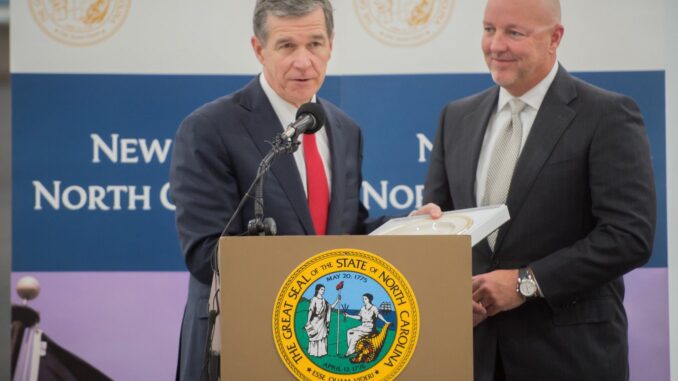
RALEIGH — The N.C. State Auditor’s office has filed another report on the N.C. Dept. of Transportation, this time on how the agency adjusted salaries as part of a two-year pilot program.
The audit says that the salary adjustments exceeded the “two-percent-of-payroll-expense limit” dictated by the pilot program, and as a result, the department overspent by $39 million. That 2% expense translates to $11.7 million per payroll for salary adjustments. The funds could also be used towards reallocation of positions, retention and recruitment programs.
NCDOT did not make the 2018-2019 state fiscal year salary adjustments as required by statute 2018-5 the audit report says. By allowing them to retain longevity and career status, the report says that NCDOT employees had an unfair advantage over other state employees. Session Law 2018-5, also known as the Appropriations Act of 2018, authorized a pilot program giving NCDOT flexibility to make salary adjustments without having to comply with the State Human Resources Commission’s compensation rules. In order for employees to receive those salary adjustments, however, they needed to voluntarily give up their longevity pay and career status, which the report says didn’t happen.
Several examples were provided in the report of employees retaining benefits that should have been relinquished under the program.
The report says that of the 7,379 Department employees who received salary adjustments in state fiscal year 2019, 6,876 of them retained career status. There were 4,747 employees eligible for longevity pay that received a total of $8.3 million.
Other examples of salary irregularities include the fact that 5,422 employees received salary adjustments greater than 10%, totaling $52 million (salaries exceeded the 10% limit by $26.1 million); that 203 employees with active disciplinary actions received salary adjustments totaling $1.5 million; and that 10 employees that “did not meet expectations” received salary adjustments totaling $72,671.
The audit report recommends that corrective action be taken to bring the NCDOT into compliance, that the department consult with the legislature to determine intent of laws and rules, and that the Joint Legislative Transportation Oversight Committee should determine whether NCDOT management performed appropriate due diligence and if appropriate action was taken or not.
NCDOT disagreed with the state auditor’s findings and recommendations in the report.
In a letter sent to State Auditor Beth Wood, NCDOT Secretary Eric Boyette said he believed the audit was based on “misinterpretations of the law” and a “misunderstanding of the pilot program.”
“The department is confident that it executed this pilot program in conformance with law and in a manner that fulfilled the intent of the legislature,” Boyette said in the letter.
Boyette’s accompanying documentation argues that the relinquishment of career status and longevity and the salary adjustment eligibility are two separate subsections that are not meant to be connected. Additionally, Boyette challenges the interpretation of the language describing 2% of payroll versus 2% of the Highway Fund and Highway Trust Fund.
The pilot program became law in June of 2018 under Boyette’s predecessor, James Trodgon, who announced his retirement in February of 2020. Trogdon left just as the department’s revenue woes were returning to the spotlight.
Budget issues first arose last October after the department overspent its budget by $2 billion. As a result of the overspending, NCDOT came very close to breaching a state law requiring the department to maintain a cash balance between $282 million and $1 billion.
In April of the following year, NCDOT was forced to institute rolling furloughs due to revenue issues, some of which were linked to lack of gas tax revenues due to COVID-19. NCDOT had previously acknowledged a budget shortfall which in turn forced spending on future construction contracts to be slashed by $2 billion.
Legislators on the Senate Transportation Committee held two hearings in June regarding the results of a state auditor’s report that revealed $742 million in overspending by the NCDOT under Trogdon’s tenure. Wood noted in her testimony before lawmakers that the NCDOT had mismanaged its budget and spending plan. She also cited a lack of oversight and monitoring by the chief engineer’s office and that the spending plan was not based on actual cost estimates of specific projects.



